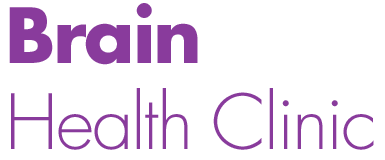
Psychotherapy and Neurofeedback Demonstrated Effective
Burning Mouth Syndrome (BMS) is described by one source as a “debilitating medical condition.” Over one million Americans are affected by it and BMS sadly has a wide variety of causes. Although every patient experiences it somewhat differently, typical manifestations are a burning sensation in the mouth or on the tongue, accompanied by taste distortions and a feeling of dry mouth, even in the presence of saliva. Symptoms typically worsen throughout the day, only improving as the patient approaches sleep. Both psychotherapy and neurofeedback are recommended to improve the symptoms of burning mouth syndrome.
Causes of Burning Mouth Syndrome
- The majority of people affected by BMS are women, typically those approaching menopause or who are postmenopausal.
- It can start after damage to the oral nerves, either due to trauma, dental procedures, or ear surgery (a major oral nerve, the chorda tympani, is responsible for conducting the sense of taste and temperature from the tongue and travels through the ear cavity).
- It can be caused as a side effect of certain medications, specifically ACE inhibitors and angiotensin receptor blockers (common blood pressure medications), although other drugs have also been implicated.
- B-vitamin and zinc deficiencies have been implicated in BMS.
- In some cases, an infection by a fungus was involved in the onset of BMS.
- Allergies to dental metals (cobalt, gold, mercury, palladium, and zinc) have been connected to BMS, as well as dietary allergies. Even sodium lauryl sulfate, a common toothpaste ingredient, has caused BMS.
- Smoking may be related to BMS.
- Sjogren’s syndrome and lupus are also associated with cases of BMS.
- Psychiatric disorders of many different types are also linked to BMS. Depression and anxiety disorders are common associative factors, although they are generally not blamed for the onset of symptoms.
Classifying Burning Mouth Syndrome Patients
The first form of classification for BMS is whether there is a known organic cause for the BMS (secondary BMS) or if the cause cannot be defined (primary BMS). Patients are also categorized by how they experience their symptoms:
- Type 1 BMS (35%) No symptoms upon awakening, with worsening symptoms through the day, variable at night.
- Type 2 BMS (55%) Continuous symptoms throughout the day, but not at night.
- Type 3 BMS (10%) Irregular symptoms, with some days free of symptoms.
Type 1 is more prevalent in secondary BMS, type 2 when anxiety disorders are involved, type 3 with allergic reactions to food or dental prosthetics.
First Steps with Burning Mouth Syndrome
Before initiating any therapeutic treatment for BMS based on psychiatric and brain health, it is critical that the patient receive a diagnosis from their medical doctor and from their dentist. It is very important to rule out any connections between BMS and drug side effects, nutritional deficiencies, curable oral disorders, allergies, fungal infection, or other forms of disease. If there is a base cause for the BMS that can be addressed with medical or dental help, this must be done first!
There are also a variety of suggested pharmaceutical treatments for BMS, with varying degrees of success. Study in this regard is ongoing. The variety of causes for BMS likely relate to why no one treatment method has earned the primary recommendation from the medical field.
The Effectiveness of Neurofeedback and Psychotherapy with BMS
“Psychiatric interventions show great promise in treating patients with BMS.” — World Journal of Gastroenterology
A study conducted at Tbilisi State Medical University in Georgia (not the state, the country) examined 36 women and 3 men with BMS. Each patient was examined by a dentist, neurologist and psychiatrist to rule out any cause that could be addressed before providing therapy. Some patients were treated simultaneously with drug therapy. Every patient was provided with psychotherapy and neurofeedback therapy. All patients reported improvement in their condition after therapy and four patients were completely cured of BMS.
A review of BMS was also completed by the New York University School of Medicine. This thorough article explained that both biofeedback and “psychosocial therapies” were accepted strategies for treating BMS. Specifically, they stated that “psychiatric interventions show great promise in treating patients with BMS.” The review cited three studies that examined the effects of weekly behavioral therapy sessions over a twelve to fifteen week period. Like the Georgian study, patients reported significant improvement after therapy and in some cases were even completely cured.
If you are experiencing burning mouth syndrome, have experienced little success with drug therapies or other forms of treatment, and want to take advantage of treatment via psychotherapy and neurofeedback, contact the Brain Health Clinic for a free consultation.
